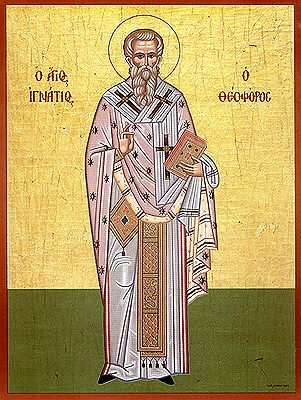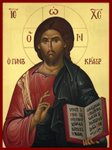
As most know, today we pray for all the souls that have departed this world for the next, especially those that are not Canonized Saints because we don't know their eternal disposition.
The Liturgy of the Hours celebrates the Office of the Dead today. As I prayed for those souls that have gone before, I began to think of my own death. Death is an evil. We were never meant to die. Death is a consequence of Original Sin. We are eternal creatures and deep down we know it. That is why death seems like such an evil. We are supposed to live eternally, and we face this experience that seems as though it will annihilate us. We sense that at the point of death we cease to exist - to be.
Some of the early Greek philosophers suggested that the human (rational) soul was eternal in a certain respect. Aristotle in De Anima thought that it was only the intellect that was eternal. Since the intellect only knows something through the passive intellect that is not eternal, our eternal soul then must not know anything.
We know through Christian Revelation that we are eternal beings. We die because of the Fall. However, the Father in his infinite love sent his Son to destroy death (the eternal death of being separated from God) by dying and rising again for the forgiveness of our sins. Now we know definitively through faith that we can live forever in the Beatific Vision. This eternal live is lived seeing God for who he is and being completely united to him in charity.
As I said, death is frightening and disturbing. I found great consolation in the writings of St. Ignatius of Antioch and wanted to share. He was the third Bishop of Antioch and lived on the late first and early second century (~50~110). He survived the Domitian persecutions but was called to martyrdom under Trajan. Trajan condemned him in Antioch. During the very long and arduous journey to Rome to die (he called the soldiers guarding him "ten leopards, even a company of soldiers, who only grow worse when they are kindly treated." (Letter to Romans)), he wrote to seven different Churches to exhort and teach them. The Letters were to the Magnesisans, Trallians, Ephesians, Philadelphians, Smyrnaeans, Romans, and to the Bishop of Smyrna St. Polycarp (who was martyred later). I would recommend reading every one of them. They are short and contain a lot of great teaching. St. Ignatius was the first to use the term "catholic " in reference to the Church and the name 'Christian' in a positive manner.
Anyway, in his letter to the Romans he is asking them not to save him from martyrdom. He wanted to be with his Lord:
I am writing all the churches to let it be known that I will gladly die for God if only you do not stand in my way. I plead with you: show me no untimely kindness. Let me be food for the wild beasts, for they are my way to God. I am God's wheat and shall be ground by their teeth so that I may become Christ's pure bread. Pray to Christ for me that the animals will be the means of making me a sacrificial victim for God.
No earthly pleasures, no kingdoms of this world can benefit me in any way. I prefer death in Christ Jesus to power over the farthest limits of the earth. He who died in the place of us is the one object of my quest. He who rose for our sakes is my one desire. The time for my birth is close at hand. Forgive me, my brothers. Do not stand in the way of my birth to real life; do not wish me stillborn. My desire is to belong to God. Do not, then, hand me back to the world. Do not try to tempt me with material things. Let me attain pure light. Only on my arrival there can I be fully a human being. Give me the privilege of imitating the passion of my God. If you have him in your heart, you will understand what I wish. You will sympathize with me because you will know what urges me on.
The prince of this world is determined to lay hold of me and to undermine my will which is intent on God. Let none of you here help him; instead show yourselves on my side, which is also God's side. Do not talk about Jesus Christ as long as you love this world. Do not harbor envious thoughts. And supposing I should see you, if then I should beg you to intervene on my behalf, do not believe what I say. Believe instead what I am now writing to you. For though I am alive as I write to you, still my real desire is to die. My love of this life has been crucified, and there is no yearning in me for any earthly thing. Rather within me is the living water which says deep inside me: "Come to the Father." I no longer take pleasure in perishable food or in the delights of this world. I want only God's bread, which is the flesh of Jesus Christ, formed of the seed of David, and for drink I crave his blood, which is love that cannot perish.
I am no longer willing to live a merely human life, and you can bring about my wish if you will. Please, then, do me this favor, so that you in turn may meet with equal kindness. Put briefly, this is my request: believe what I am saying to you. Jesus Christ will make it clear to you that I am saying the truth. Only truth can come from the mouth by which the Father has truly spoken. Pray for me that I may obtain my desire. I have not written to you as a mere man would, but as one who knows the mind of God. If I am condemned to suffer, I will take it that you wish me well. If my case is postponed, I can only think you wish me harm. (Taken from the Liturgy of the Hours: St. Ignatius' Memorial; October 17th)
They wished him well. As soon as St. Ignatius arrived in Rome, he was fed to the lions in the Flavian Amphitheater...
What an amazing perspective! I so often cling to this life like it is the only one that is possible. I completely forget the admonition of Jesus: "For whoever would save his life will lose it; and whoever loses his life for my sake and the gospel's will save it." (Mark 8:35) This life is but a shadow of the one that God has in store for us. Our true life, the one that was always intended for us, is found in the Beatific Vision. Let us allow, then, St. Ignatius' words and attitude to penetrate us deeply so that we live this life, not in fear of its end, but in hope for the true beginning of our life; to see God, to be united to him, that is our life. Let us on this day, where we pray for the dead, let go of the fear of death. Then we can begin to live our eternal life now and say with St. Paul: "'O death, where is thy victory? O death, where is thy sting?' The sting of death is sin, and the power of sin is the law. But thanks be to God, who gives us the victory through our Lord Jesus Christ." (I Corinthians 15:55-57)



No comments:
Post a Comment